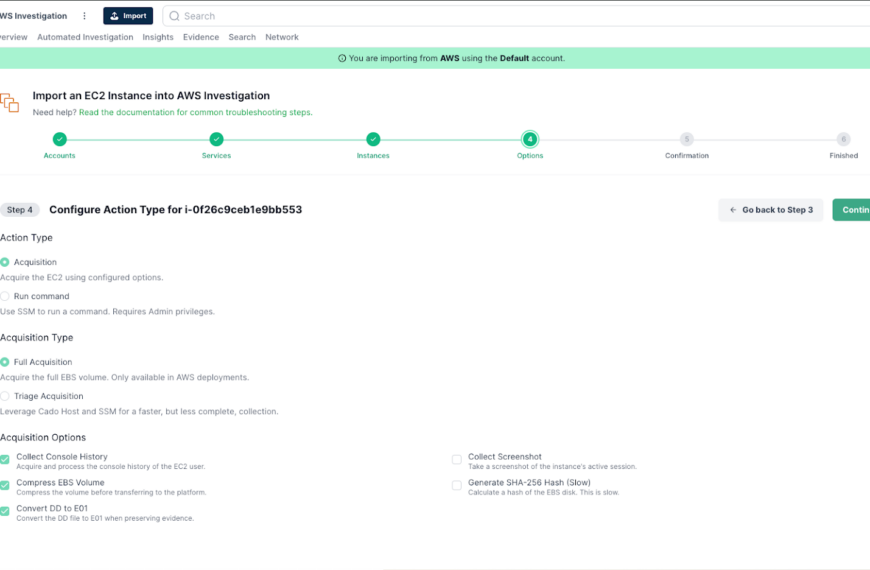 Carole, you're currently a trustee for BulliesOut. How did you become involved with the charity?
Carole, you're currently a trustee for BulliesOut. How did you become involved with the charity?
I first heard of BulliesOut through being involved in the charity Children in Wales and contacted the CEO, Linda James, via LinkedIn. We met as I was interested in what the charity did and what involvement the charity had with schools and other professionals working with young people. I was impressed with the dedication of Linda and her desire to get the message out there to young people that no-one has to put up with bullying. The charity looks at all aspects of bullying, working with the bully as well as the victim and also the bystanders who have a crucial role to play. BulliesOut operates in other countries as well as the UK but it was encouraging to learn that it is a Wales based charity and one that is well respected. I was asked to become a Trustee, and although I was not sure what being a Trustee involved, I was happy to join the team. I promote the charity as much as I can with other professionals and young people and although my time is limited due to working full-time and my University studies, I do what I can.There has been increased coverage of cyber bullying in the media recently. How large a problem is cyber bullying? Is it really growing as fast as the media seem to suggest?
When the tragic deaths of young people such as Hannah Smith and Daniel Perry hit the headlines, the spotlight is rightly focused on social networking sites and how bad they are and what can be done to prevent further deaths. Because of the publicity, it appears that all of a sudden social media has become a problem, yet the truth is that concerns about young people inappropriately using social networking sites have never gone away. Schools can vouch for this in the increased number of incidents they deal with; almost always at the centre of bullying incidents is a social network site or messaging service such as Ask.fm. As was the case in the summer with Ask.fm, there was a public outcry to get the site closed down, but this is not the answer. Whilst publicity about messaging services pushes for stricter monitoring and moderation and to take more responsibility for the care of its primarily young users, educating young people about their behaviour online is vital in driving home the message about safer use.
Following the deaths in the summer of Hannah and Daniel, the media has been saturated with news stories about young people and social media and there is a danger of overloading the public with information and nothing being done. At the heart of all bullying incidents are the young people themselves who are both the victims and perpetrators, and it is this that needs to be addressed. If cyber bullying is allowed to continue online without any redress, the situation will only get worse as the speed of technological advances will continue to grow. The morality of young people is compromised when they communicate on social media sites and they have no boundaries. It is very easy to get carried away saying things to other people without realising the impact of their words.
You also teach internet safety to young people, parents and carers. What made you decide to pursue this role?
When CEOP was founded in April 2006, Facebook was in its infancy yet I had already started to deal with issues relating to the social networking site, but not on the scale that I am today. I attended a CEOP ThinkUKNow training course in 2007 which allowed me to deliver their resources to students in all Key Stages, and later that year I received the CEOP Ambassador training which enabled me to cascade the training to other professionals that allowed them to deliver resources to students. To date, I have delivered the CEOP program to over 2,754 students and have also developed my own resources to ensure that my lessons are kept up to date with the current trends which are evolving at a rapid pace. I also deliver assemblies to students when specific issues arise and I need to ensure my students are made aware of current concerns and know what to do to safeguard themselves. Students who are concerned about issues raised during assemblies or lessons I deliver will come to see me confidentially to discuss any worries they have about their online privacy and together we look at their networking site(s) to ensure they have adequately protected themselves online.
It also became evident through my involvement with young people and parents and carers, that their knowledge base of the usage of social networking sites was quite limited, so I started talking at Parents’ Evenings and plan to do more in October, both in the school I work in and the local Primary school. Year 7 students (aged 11-12 years) are entering secondary school already on Facebook and have been in possession of a mobile phone for many years, yet do not have the maturity to deal with problems when they go wrong and it is for this reason that I continually drive the message home to students, staff and parents about safer use online and what to do when things go wrong.
What are the main points you try to get across in your internet safety sessions?
Firstly I state that the internet is a fantastic place to explore and in safe hands, it is a harmless environment to be. There is a fine line to be drawn when teaching internet safety as you do not want to scare young people off using it or being fearful of it but at the same time, you need to equip them with the appropriate tools to safeguard them and give them an awareness of when things are not right. The lessons I deliver are interactive and get them to reflect on their own behaviour online and look at how their actions or their friends’ actions could potentially place them in danger or compromise their well-being. For instance, I advise them not to post pictures of themselves as their profile pictures on Facebook as it is public by default and even if their settings on the site are private, they can be traced just through their picture. I also strongly advise against posting a picture of them in their school uniform as they can be identified by their uniform, particularly their school tie.
It is often reported in the media that young people should report any inappropriate activity online to the relevant providers of the sites they are using. But rarely are the young people told how to do this and what happens when they have had to report, for instance, to Facebook. I cover this in my lessons and go through who they are reporting to, who reads the report, who will contact them and what happens following them being contacted. Young people are often put off from reporting as they are unsure what will happen and even if they are the victim of abuse online, they often feel they are to blame and will therefore not report it and will keep it to themselves. There is also a fear that the situation will be made worse if they report it, but they are reassured that they are doing the right thing by reporting it as not only are they preventing themselves from being a victim, they are also protecting peers who may go on to experience cyber bullying.
I encourage students to carry out vanity checks by searching for themselves to see what comes up and how easy it is to find them and also what information is out there about them. I address the level of privacy and demonstrate how to protect their social media sites by showing them how to navigate the platforms they are using. Following my lessons with the students they often come to see me privately to ask me to go through their settings with them. This gives me a great deal of satisfaction as I know they have taken on board the seriousness of my message which allows them to use the internet in the knowledge that they are keeping themselves safe. I also deliver lessons on sexting, trolling, safe passwords, grooming, geo location, messaging applications, and gaming, and address the privacy settings in each of these areas to maximise young people’s safety online.
You must come across some disturbing subject matter in the course of your work. How do you cope with this side of things?
It can be difficult at times and sometimes all I want to do is be alone to work issues through by myself. It is difficult to switch off your feelings when you leave work to go home. Due to the confidentiality aspects of the role, you cannot share what has occurred with anyone other than a line manager and this can be very isolating. However, I know that I have safeguarded a young person and that is my main priority as a child’s welfare is paramount, so in that respect, it gives me a sense of satisfaction that I have done a good job. The role requires a level of on the spot decision making and this can be stressful at times but the decision is made in the best interests of the child.
Do you think issues related to cyber bullying and internet safety will improve for future generations, or might they get worse as technology continues to evolve?
Technology is growing at an alarming rate but the maturity of young people using social media platforms is not, and therein lies the problem. There is an element of detachment from what young people are doing online; they are desensitised to the potential risks they are experiencing and feel that it is just something they have to put up with. They are afraid to report bullying incidents for fear of the situation getting worse, therefore they take on the problem themselves and keep quiet about it which only makes matters worse as the bully perceives this as weakness and continues to bully them. As educators, we need to instil morality online in the same way we do in the ‘real’ world. We would not treat anyone in the real world the same as we would online as it would not be accepted, yet this is what happens. The veil of anonymity gives a false sense of security for hiding one’s identity and a heightened sense of bravado to act in a bullying manner, yet they would not have the courage to do this face to face. The interactive lessons I deliver in school bring home the reality of the impact this has on a person on the receiving end of such behaviour and makes them think about the conduct of their own behaviour online.
Keeping parents and carers involved in education about internet use and the applications their children are using is key in educating and safeguarding young people. The internet is here to stay and the so called digital native and the digital immigrant of today must set the example for good behaviour to the future generations. Young people copy adult behaviour and if parents are attached to their mobile devices or constantly working on their laptop at home, it goes without saying that young people will perceive this as normal behaviour and react when told to not spend so much time using their devices when they see their parents doing exactly that. Lessons in school must concentrate on the adverse excessive usage of social media, what exactly their digital footprint means for them in the future and how negative behaviour online can jeopardise their future career plans. I recently ran an assembly on this with Year 10 & 11 and it gave them a different perspective on how negative behaviour can look to other people, especially if employers check their profiles when applying for a job; comments made to people on social networking sites that are threatening or bullying do not give a good impression about the character of that person.
Schools need to revise their anti-bullying policies and include action points regarding cyber bullying and what steps should be taken following reported incidents of cyber bullying. Students must be made aware of the consequences of their actions and that cyber bullying will not be tolerated in any shape or form. Open, transparent communication with service providers, educators, parents and most important of all, young people, on issues related to online conduct is needed so that cyber bullying is not something that only reaches the public attention when a tragedy occurs. We need to talk to our young people and encourage them to talk to an adult when things are going wrong, whether it be the bully or the victim.
What do you do to relax and unwind in your spare time?
Spare time? I rarely get any! I ensure I make the time to go to the gym several times a week, attend salsa classes a few evenings a week as well as walking and mountain climbing. I have just started running and am building up my time I spend running not walking at a fast pace! I enjoy attending a monthly philosophy café and will be speaking at the café in December on the philosophy of bullying. I actually research and read up on child protection and sexual exploitation of young people in my spare time as I never really switch off and I am in my final year of a criminology degree after 6 long years so maybe next year I will find more time to relax, though I plan to continue with my Masters so who knows when I will truly be able to relax and unwind. I do not like being idle so relaxing does not come easily for me and I use my ‘free time’ to update my lessons and literature to give myself a head start on the trends of social media currently being used by young people.
If you are concerned about issues related to cyberbullying or child protection, the following organisations can help:
BulliesOut – BulliesOut
CEOP – CEOP














